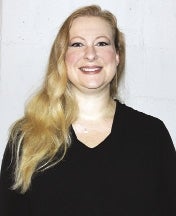
Small nonprofit work is undervalued
Wow. The past seven months have been unlike any of us have ever seen. Most of us have been through a range of emotions: scared, confused, and overwhelmed peppered with moments of hopefulness and hopelessness. Honestly, these emotions are like those experienced by nonprofit leadership pretty regularly even without a pandemic. This is why it is so easy for small nonprofits to step up and fill critical gaps without hesitation: taking big risks to meet the needs of the community you serve is natural. Scary is normal when you do scary stuff on the daily.

The challenges of running a small nonprofit are certainly compounded by the coronavirus. Funding opportunities have been diverted to COVID-19 relief funds, but the needs of our participants remain constant.
Unfortunately, the role of small nonprofits, particularly population-specific agencies, has been undervalued during the COVID-19 crisis. Nonprofits in general are being asked to take on more work stretching the scope of their missions, to serve more people to ensure vulnerable populations are not suffering harm, while executing all of these tasks with significantly less funding.

As a young nonprofit serving women demonized and dismissed in the best of times, to say our challenges have been exacerbated by COVID is an understatement. Nevertheless, we persisted. We not only continued to provide face-to-face support, we expanded supports for prostituted people, and opened and operated an emergency shelter.
Routinely, agencies are asked to open programs, pay staff, and carry operating costs while they await disbursement of promised grants. This is a big ask for small agencies delivering vital services to vulnerable populations. Small nonprofits are often overlooked for large funding opportunities as grantors allocate sizable awards to larger, well-established agencies who are less willing or able to fill critical gaps in resources the way small, focused, local nonprofits do.
Living in Freedom Together, Inc. is a small survivor-led, women-led nonprofit with an administrative department consisting of five people. We all wear many hats and often put our families’ needs behind those of our organization to build essential programs for women no one else will.
This article is not about one organization. Small nonprofits do a lot of big work. The funding community must understand small organizations can be naturally nimble and highly effective at delivering targeted outcomes, and they must commit to funding these outcomes, as it is crucial to the survival of the populations they serve. The coronavirus pandemic exacerbated the critical gaps in meeting the needs of our most vulnerable. Thankfully, small nonprofits doing the work to fill these gaps were already in place. One thing the pandemic hasn’t changed is this commitment to fill critical gaps no matter how hard we must work to get it done.
Nicole Bell and Courtney Ross Escobar are CEO and COO of Worcester nonprofit Living In Freedom Together.









0 Comments